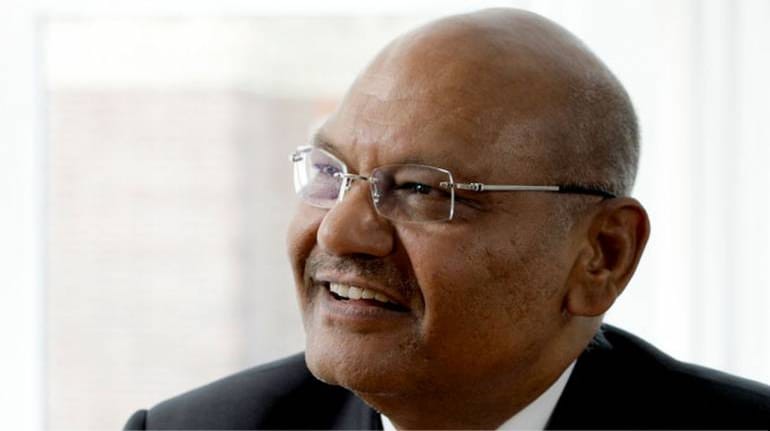



By any measure, Anil Agarwal is a successful entrepreneur.
Starting as a scrap dealer, Agarwal built a mining empire turning around government-owned enterprises, setting up facilities in places where bigger names feared to tread and taking bets that others initially scoffed at, and later grudgingly admired. His Vedanta Resources was the first Indian company to list on London Stock Exchange, and Agarwal announced his arrival on the global scene with a palatial house at Mayfair, the tony neighbourhood in the UK capital.
Vedanta Resources is today one of the top ten mining giants in the world, with revenues of USD 15.4 billion last year.
At the same time, Agarwal has been dogged by controversies and brickbats in equal measure all throughout his career.
Agarwal’s latest battle ground is Thoothukudi in Tamil Nadu, where group company Sterlite operates a copper smelter. The facility is in the news after the state government closed it down, following death of 13 protesters who were alleging pollution by the smelter.
A dismayed Agarwal said in an interview to a business daily that the company followed strict rules on treatment of effluents. “If some independent agency comes in to verify, they are most welcome,” he said in the interview.
Allegations though have shadowed the facility since it came up in the 1996. In fact, Agarwal had initially wanted to set up the facility in Ratnagiri in Maharashtra, but had to back off in the face of sustained resistance from environmentalists. He succeeded in setting up the smelter in Thoothukudi, but allegations of pollution persisted.
Locals claimed that Sterlite let out effluents into the sea by linking its drainage pipes to those of another company, which eventually drained out the waste into the sea.
Protesters even landed up in front of Agarwal’s house in London, bringing world-wide attention.
The 13 deaths have now prompted calls from the UK’s Labour Party for Vedanta’s delisting from the LSE to “remove its cloak of respectability.”
Like in the past, now too Agarwal has blamed ‘vested interests’ for protests in Thoothukudi.
Similar script
A few years ago, a similar script played out in the interiors of Odisha. Vedanta wanted to mine bauxite mine from Niyamgiri to feed its alumina refinery. It was part of Agarwal’s grand plan to have an integrated aluminium plant that had the lowest costs in the world.
But protests from tribals and high profile campaigns by international NGOs built a tidal wave of opinion against the project. Some of Agarwal’s reputed investors, including Pension Fund of Norway and the Church of England, sold their shareholding in Vedanta. Eventually, local 12 Gram Sabhas rejected the mining proposal in 2014.
Then too, Agarwal’s colleagues had alleged an “international conspiracy to stall Vedanta’s progress.”
Many see these controversies as a price Agarwal has to pay for chasing assets with low cost of production. His extremely profitable copper mines in Zambia were alleged to have contaminated water tables in villages in its periphery.
Or, is it a perception problem? Those close to the billionaire entrepreneur claim Agarwal’s lack of articulation seems to go against him.
Whatever his oratorical skills or the lack of them, Agarwal has given ample evidence of his ability to scale up businesses. Within two years of acquiring Sesa Goa, the iron ore miner, Agarwal had increased production by over 50 per cent. Similarly, he turned around Balco and Hindustan Copper, both government companies that were divested.
Balco’s disinvestment though was clouded under suggestions that “it was sold for a song.”
Corporate responsibility
Agarwal has taken steps to change Vedanta’s perception in public.
After high profile investors sold their stakes in Vedanta, Agarwal hired a PR agency. In 2005, he created a group head post for CSR, an area that may not have been at the top of priority list till then.
At investors meets, Agarwal now begins his presentation with company’s performance on safety, environment and sustainability. The company’s website now prominently displays its sustainability report.
But are these steps enough?
For instance, Vedanta is still not part of the International Council on Metals and Mining, which has leading miners such as BHP and Rio Tinto as members. Members of the Council adhere to principles that ensure sustainable mining and are audited by a third party.
As Agarwal fights another round of public protest, negative perception and government action, the billionaire now needs to do more.
Discover the latest Business News, Sensex, and Nifty updates. Obtain Personal Finance insights, tax queries, and expert opinions on Moneycontrol or download the Moneycontrol App to stay updated!
Find the best of Al News in one place, specially curated for you every weekend.
Stay on top of the latest tech trends and biggest startup news.